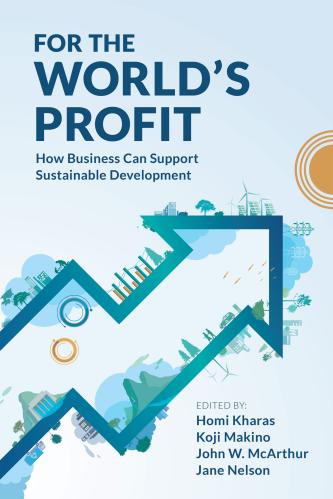As the debate in Congress continues over whether or not to vote on lifting the decades-old ban on crude oil exports (with movement in the House expected in the coming weeks), additional studies on the merits and consequences of this action continue to emerge. Most recently, scholars at the Center for American Progress (CAP) released an article criticizing the extensive research on how lifting the ban would enhance U.S. energy security and benefit domestic economic interests, contending that “the economic, national security, and environmental impacts of changing long-standing U.S. crude oil policy are neither well-documented nor well-understood.” This argument is so devoid of reality that it merits a sharp rejoinder, as does another CAP piece from January of last year that mistakenly claims that lifting the ban would cause an increase in gasoline prices—a conclusion reached without any rigorous modeling data.
Just over a year ago, before the collapse in the price of oil, the Energy Security and Climate Initiative at Brookings released an extensive report analyzing the crude oil export ban in conjunction with a top-notch research firm, NERA Economic Consulting. Our research concluded that lifting the ban on crude oil exports would be overwhelmingly beneficial for the U.S. economy and U.S. energy and national security. Furthermore, ours was not the only report reaching these conclusions. Major studies done by IHS/CERA, Resources for the Future, ICF International, Columbia University, Harvard Business School, the Congressional Budget Office, the Government Accountability Office, and most recently the U.S. Department of Energy’s Energy Information Administration all analyzed data on the effects of lifting the ban across an array of scenarios. This wealth of research has concluded that lifting the ban on crude oil exports will lower the price of gasoline, largely because the price is set in the international market where adding supply will reduce the cost of feedstocks to global refiners, allowing them to sell at a lower price in a highly competitive environment. Our study’s key findings included:
- Lifting the ban on crude oil exports will boost U.S. economic growth, and increase wages, employment, the balance of trade, and enhance overall economic welfare.
- The benefits are greatest if the United States lifts the ban in 2015 rather than delaying for all types of crude.
- Lifting the ban lowers gasoline prices by increasing the world amount of crude supply available to refiners.
- It is unlikely that U.S. oil exports will be a major calculus in the Organization of the Petroleum Exporting Countries’ (OPEC) decision to cut production to offset the effects of lifting the ban.
- Permitting the export of crude oil will enhance U.S. global power.
National security benefits of lifting the crude oil ban
Though lifting the ban on crude oil exports isn’t solely an economic issue, the data found in all the aforementioned reports is the most straightforward and well documented information available on the subject and this cannot be disputed—especially by reports with no analytical foundation. Similarly, CAP’s assertion that lifting the ban on exports would endanger national security while “abandoning the national goal of American energy independence” is at sharp odds with Brookings’s own conclusions and those of many of the other studies cited above. These reports find that in fact lifting the ban will strengthen our national and energy security in several ways:
- Increasing oil production in a politically stable North America will improve world oil security.
- Increase U.S. self-sufficiency in oil.
- Reduce global price volatility by adding to supply.
- Allow U.S. allies in Europe and Asia to diversify their crude oil supply sources away from dependency on Russia (in the case of Europe) and away from seaborne routes in the South China Sea increasingly claimed by China (in the case of Japan and South Korea).
- Address oil supply disruptions by a production supply response.
- Allowing crude oil exports will increase revenues for domestic producers allowing them to drill for more oil, further reducing U.S. oil imports while creating jobs and boosting American economic power that undergirds U.S. national power and global influence.
While the authors of the January 2014 CAP report would have you believe that lifting the ban will reduce U.S. security by increasing our dependence on foreign oil that is still vulnerable to supply disruptions, this simply is not true. Let’s not forget that the United States imports nearly 40 percent of its oil from Canada and exporting our oil will only make for a more diverse and competitive world oil market. Moreover, since the 1973 to 1974 oil embargo, U.S. policymakers and pundits often have confused energy dependence and the vulnerability posed to U.S. energy security by America’s large dependence on oil imports. However, there is a substantial difference between dependence and vulnerability. It is the high concentration of cheap petroleum reserves in unstable regions of the world which impose risks to the United States and global economy. As pointed out in our report, rising U.S. production does not protect the U.S. economy completely from supply disruptions in the world market, but it does reduce wealth transfers from the United States to foreign sellers and adds resiliency to the United States and allied economies from the threat or the reality of periodic disruptions. Hence, U.S. production provides a higher level of energy security, and lifting the ban on crude oil exports increases U.S. production as producers take their new found profits in the international market and use them to look for more oil here at home.
Environmental concerns
In terms of environmental impacts, Congress should be aware that oil producers in the United States have a long history in petroleum development and extensive experience complying with U.S. environmental requirements. Our report notes that lifting the ban will lead to an incremental increase in greenhouse gas emissions, but these emissions would be paltry in comparison to those from our coal fleet and automobile industry. While we agree that the emissions component of exports is important, it is extremely difficult to model unless you can be precise on where the exports will be refined, what type of refinery will process them, and what products the crude oil is refined into. On balance we do not believe that for the reasons cited that the environmental impact should be the only or even primary consideration when lifting the ban has many positive impacts, including improving the country’s energy and national security as well as that of our valuable allies. Moreover, if Congress truly wants to address climate change, then it should adopt appropriate climate policies that address emissions across sectors.
In summary, increasing crude oil exports in any fashion will have positive economic effects both in the United States and in the world oil market. At the same time, world energy security will be enhanced by increasing the diversification of oil supply available globally while also increasing U.S. energy security. Lifting the ban generates paramount foreign policy benefits, increases U.S. gross domestic product, and economic welfare while reducing unemployment, and creates thousands of high paying jobs. Furthermore, lifting the ban will allow U.S. producers access to the global market, boosting the U.S. economy as these enhanced revenues are reinvested in the oil industry here at home.
When all the positive data and research available by a multitude of credible institutions comes to very similar conclusions, how do these Center for American Progress scholars still argue that there isn’t enough information available for Congress to make an informed decision on exports? The evidence is extensive, and we believe there is no time better than now for Congress to finally move to lift the ban. It is time the United States commits to its longstanding commitment to free trade markets as a true member of the Organization for Economic Cooperation and Development and global community and allows U.S. crude oil to flow.
The Brookings Institution is committed to quality, independence, and impact.
We are supported by a diverse array of funders. In line with our values and policies, each Brookings publication represents the sole views of its author(s).


Commentary
Lifting the U.S. ban on crude oil exports: Let’s use data over ideology
September 16, 2015